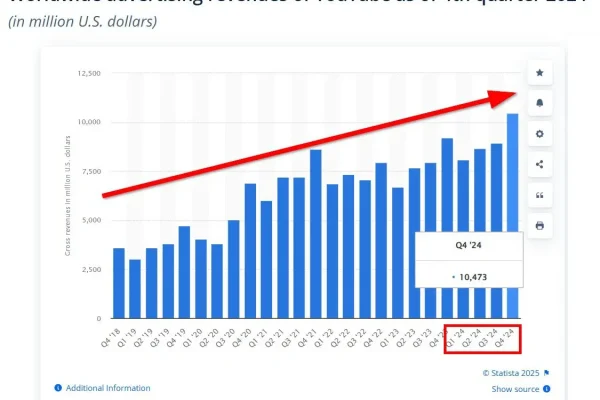Let’s be honest. The ledger doesn’t lie, and neither does the collective sigh from the accounting profession. You know the feeling. The endless deadlines, the eye-straining spreadsheets, the constant pressure for precision. It’s a high-stakes environment where the weight of financial accuracy can feel like a physical burden.
Burnout isn’t just a buzzword; it’s a real, grinding state of emotional, physical, and mental exhaustion. For accounting professionals, it’s a pervasive occupational hazard. But here’s the deal: protecting your mental health isn’t a sign of weakness. It’s a critical component of professional longevity and, frankly, doing good work. Let’s dive into the why and the how.
Why Accountants Are So Susceptible to Burnout
It’s not in your head. Well, actually, it is, but the causes are very real and systemic. The structure of the profession itself is a perfect storm for chronic stress.
The Tyranny of the Tax Calendar and Month-End Close
Your year is not your own. It’s dictated by quarterly estimates, month-end closes, and the relentless approach of April 15th. This cyclical nature means stress isn’t a sporadic event—it’s a predictable, recurring nightmare. There’s no true “off-season” anymore, just varying degrees of busy.
The Pressure of Perfection
A misplaced decimal point can have monumental consequences. This demand for 100% accuracy, every single time, creates a state of hyper-vigilance that is utterly draining. It’s like walking a tightrope without a net, for eight-plus hours a day.
The Technology Treadmill
While tech is supposed to make life easier, the constant need to learn new software, adapt to new regulations, and stay ahead of automation can feel like running on a treadmill that keeps getting faster. It’s a significant source of mental fatigue and job insecurity.
Recognizing the Red Flags: Are You Burning Out?
Burnout creeps in. It doesn’t happen overnight. You might not even notice it at first, mistaking it for just a “rough patch.” But your body and mind send signals. It’s crucial to listen.
Emotional Signs: You feel cynical, detached, and irritable. Clients you used to handle with ease now grate on your nerves. You find yourself feeling ineffective and questioning the value of your work.
Physical Signs: You’re constantly tired, no matter how much you sleep. Headaches, stomach issues, and changes in appetite or sleep patterns are common. Your immune system seems to take a hit, and you get sick more often.
Behavioral Signs: You’re making uncharacteristic mistakes—the very thing you fear most. Procrastination sets in. You might withdraw from colleagues and social activities. Honestly, some days, just opening your laptop feels like a Herculean task.
Practical Burnout Prevention Strategies That Actually Work
Okay, so we’ve identified the problem. Now, what can you actually do about it? This isn’t about achieving some unattainable state of Zen; it’s about building small, sustainable habits that create resilience.
1. Master Your Time, Don’t Let It Master You
Time management for accountants is non-negotiable. It’s your first line of defense.
- Time Blocking is Your Best Friend: Schedule everything. And I mean everything. Not just client work, but also email checking, professional development, and—this is key—breaks. Protect these blocks fiercely.
- The Power of “No”: You can’t do it all. Learn to push back on unrealistic deadlines or scope creep. It’s uncomfortable at first, but it’s liberating.
- Leverage Technology for Good: Use automation tools for repetitive tasks. A few hours spent setting up a smart workflow can save you dozens of hours down the line, reducing cognitive load.
2. Create Rock-Solid Boundaries
In a world of constant connectivity, your off-hours must be sacred.
Set a hard stop time and stick to it. Turn off work notifications on your phone after hours. Create a physical “shutdown ritual” at the end of your workday—close all tabs, tidy your desk, make a list for tomorrow. This signals to your brain that work is over.
3. Move Your Body (It’s Not Just a Cliché)
You spend all day in your head. You need to get back into your body. Exercise is a powerful stress reliever. It doesn’t have to be a marathon. A 20-minute walk outside, some stretching, a quick bike ride—it all counts. The goal is to break the cycle of sedentary stress.
4. Cultivate a Life Outside of Accounting
Who are you when you’re not an accountant? It’s a vital question. Nurture hobbies that have nothing to do with numbers. Spend quality, uninterrupted time with family and friends. This isn’t a distraction; it’s a reaffirmation of your identity beyond your job title.
What Firms Can Do: Building a Healthier Culture
This isn’t just an individual problem; it’s a cultural one. Firm leadership has a massive role to play in preventing burnout in public accounting.
| Initiative | Impact |
| Offer Flexible Work Arrangements | Gives employees control over their time, reducing commute stress and improving work-life integration. |
| Normalize Mental Health Days | Encourages people to rest before they reach a crisis point, destigmatizing mental health. |
| Lead by Example | When partners log off at a reasonable hour, it gives permission for staff to do the same. |
| Invest in Technology & Training | Reduces manual, frustrating work and empowers employees with efficient tools. |
A Final Thought: Your Well-being is an Asset, Not a Liability
In a profession that deals in assets and liabilities, it’s time to reframe the conversation. Your mental health is not a line item to be minimized. It is, in fact, your most valuable asset. It’s the foundation upon which your focus, your accuracy, and your professional judgment are built.
A depleted accountant is an inaccurate one. A stressed-out professional can’t see the creative solutions a client needs. Investing in your own well-being isn’t selfish—it’s the most strategic career move you can make. Because a clear mind doesn’t just balance the books; it opens new chapters.








